Planting Seeds of Justice
BY CHRISTINE WHITE | May 24, 2017
“If you want peace, work for justice.” These words by Pope Paul VI have been a guiding value during my discernment process in these few years since graduating from college. I’ve always been drawn to the idea of peace and promoting positive change in the world. Would I work in international relations, to push for peace on the international level? In humanitarian response, to support those living in war? In development, to help build a more peaceful world? The more I’ve learned about and experienced the violence, pain, and poverty that exists in the world, the more I’ve felt drawn to the work of justice, in all its forms.
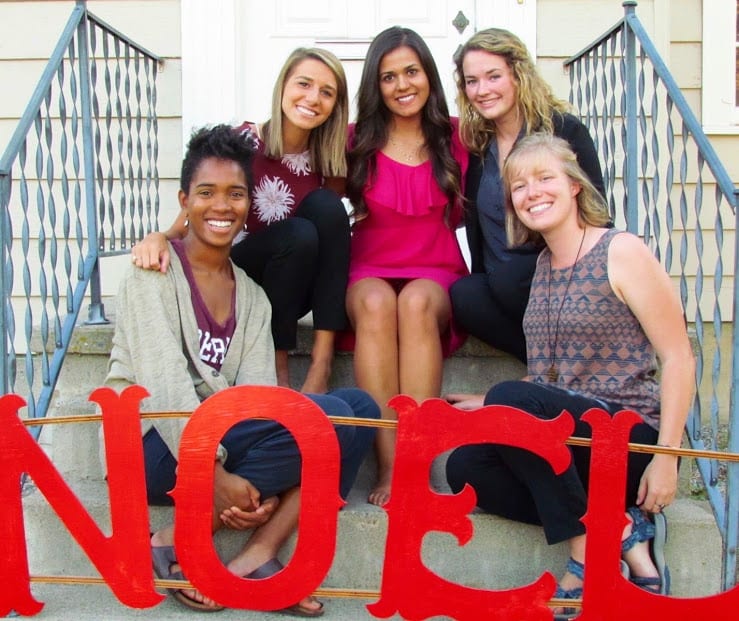
The author (right) with the Casa Noel Wenatchee Jesuit volunteers.
I’ve had to reflect on justice a lot recently. I’ve been feeling the curve of transition as I enter the last quarter of my JV year, taking time to think about the core values and how they have guided me and will continue to do so. My service organization, the Northwest Justice Project, recently hosted an all-staff meeting in which our staff gathered from four offices across the state to reflect on the year’s successes, challenges, and discuss our mission statement of “securing justice through high-quality legal advocacy that promotes the long-term well-being of low-income individuals, families, and communities.”
But what is justice? Is it equity? Is it retribution? How does it intersect with love? How does it intersect with me?
I think of the way Jesus tends to discuss justice in his teachings— preferential to the poor; giving without expecting something ‘fair’ in return; something that is both present in our world today and something that is to come.
I think of the signs we held and the chants we shouted during the Women’s March in January— calling for justice for voices that often go unheard.
I think of what justice or fairness looks like through living in community— do we allow ourselves to give instead of taking, even with nothing promised in return?
[socialpug_tweet tweet=”Do we allow ourselves to give instead of taking? #JVReflects”]
I think of ecological justice, food justice, justice for agricultural workers who work in orchards we pass every day and that pick the apples we consume— does growing our own garden still get to feel as good if we have to coax it along with water from the hose instead of the sky?
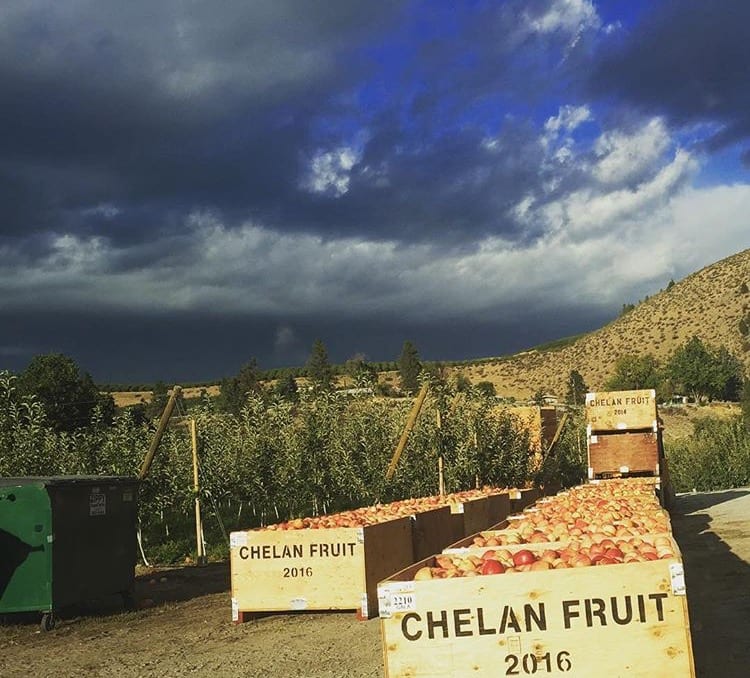
A view of the land during farmworker outreach.
And obviously, I think of the value of social justice, which is particularly relevant for me this year, as I experience its intersection with legal justice.
Justice in a legal sense, particularly in the criminal courts, can feel harsh and retributive. While the civil realm, where the Northwest Justice Project does its work, can still have characteristics of that ‘punishment’ centered system, it also can provide small steps for healing. For access. For justice. A family, held metaphorically hostage by lack of income and lack of language access to look for other housing, is able to receive damages from living in a condemned apartment. A mother fleeing domestic violence can secure a protection order that allows her the first steps in creating a new life. Farmworkers who were sprayed with pesticides are provided with settlements to support them in accessing the medical support they will need to address the exposure. A woman who struggles with hoarding is able to delay eviction from her apartment and receive help moving items to storage. When we’re able to help people and communities navigate a system that wasn’t necessarily built for them, that feels like justice.
Unfortunately, sometimes “justice being served” in a certain case or motion isn’t enough. We might connect with a family in order to assist with a housing case, but with a landlord lacking money to pay damages and no affordable housing in town, the result of the family having to move to a different town can actually feel destructive, not restorative. We might provide support in a divorce from an abusive spouse, only to be called again years later for the same client, now with a different, also abusive, spouse. It can be hard to feel like progress is being made when the steps are often so small.
[socialpug_tweet tweet=”It can be hard to feel like progress is being made when the steps are so small. #JVReflects”]
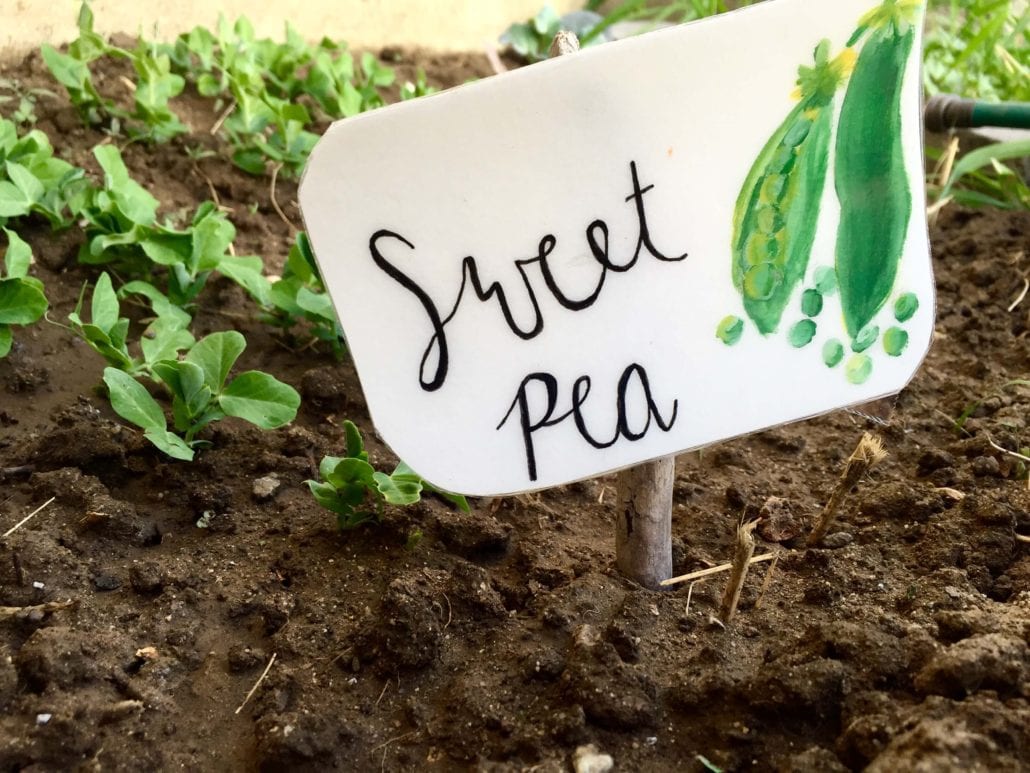
Sprouts growing in the Wenatchee Jesuit volunteers’ garden.
There’s a reason that justice is often referred to as a seed— we’re called to “sow the seeds of justice” or “plant justice.” And just like our garden of little sprouts that we’ll be nursing this spring and summer, it’s not something we can expect to see results or feel changes from overnight. If I check our sprouts excessively, waiting for progress, hovering, I’d be disappointed to see how small they still seem. But if I concentrate on the process, on watering and weeding, I’ll suddenly find myself surprised to see the progress. And so going forward in the rest of my JV year and beyond, I will focus on the process, focus on the small moments, and the big picture will emerge, bit by bit.
[socialpug_tweet tweet=”We’re called to sow the seeds of justice #JVReflects”]
#JVReflects explores the intersection of faith and justice from the perspective of JESUIT VOLUNTEERS serving as long-term volunteers both domestically and internationally with Jesuit Volunteer Corps and Jesuit Volunteer Corps Northwest. Reflections specifically focus on the cornerstone values of the Jesuit volunteer experience: spirituality, simple living, community, and social justice.
Christina White is a Jesuit Volunteer from Indianapolis, IN. She is currently serving at the Northwest Justice Project in Wenatchee, WA as a Legal Specialist and Outreach Coordinator. She graduated from Indiana University Bloomington with a degree in Political Science, Economics, and Spanish.

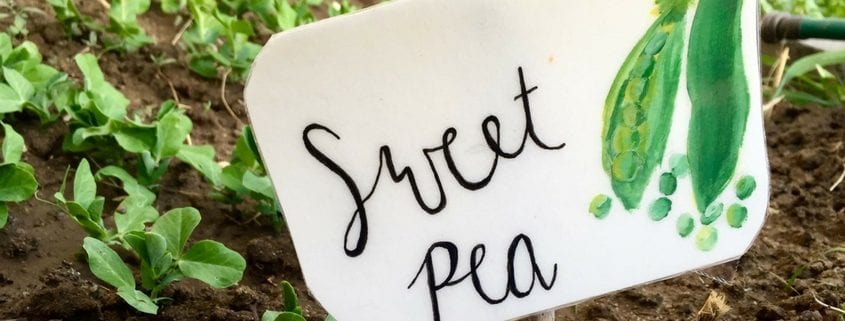



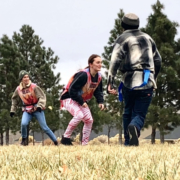

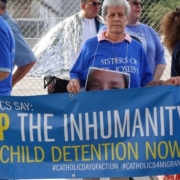

Trackbacks & Pingbacks
[…] Read her full post on the Ignatian Solidarity Network blog here. […]
Leave a Reply
Want to join the discussion?Feel free to contribute!